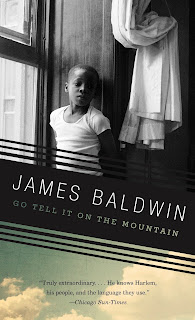"In a world where we have been genetically engineered so that we can
photosynthesise sunlight with our hair hunger is a thing of the past, food an indulgence. The poor grow their hair, the rich affect baldness and flaunt their wealth by still eating. But other hungers remain...The young daughter of an affluent New York family is kidnapped. The ransom demands are refused. Years later a young women arrives at the family home claiming to be their long lost daughter. She has changed so much, she has lived on light, can anyone be sure that she has come home?"
I was drawn to this book initially by the very interesting premise. I am also willing to admit, here and now, that the cover totally sucked me in. An art deco sensibility is definitely the way to make me interested in starting your book.
The main idea is that science has produced a mechanism where people are able to gain all their energy from sunlight, thanks to a bug that makes their hair capable of photosynthesis. All they need to live is water and a few essential nutrients. A clever idea, certainly, but where Roberts triumphs is in exploring the many unexpected implications of this change. The absolute heart of what makes science fiction.
One implication considered is that for the first time ever it's possible to have a group of people who have literary no money at all.(Besides slaves obviously.) A group of people that the wealthy can argue don't need to be paid in money. Making them not just poor, but literally penniless. Roberts also examines the possibilities for male/female distinctions (though I will be honest this sounded extremely far fetched), and how a small group of wealthy people might consider those who have the special hair to be a subspecies, and begin to conspicuously wear their hair short to emphasise their extreme wealth.
Something I thought was clever on Roberts part is that he creates a world in which the wealthy and the poor both realistically portray their stereotypical attributes. The poor sit around all day doing nothing, lazy, sex obsessed, violent, contributing nothing. But for reasons that make sense in the world. The poor, because they are surviving on light alone, have no extra energy to do anything. They survive but are skeletal and easily drained, fighting for the one resource they still need. Water.
The wealthy, on the other hand, are cut off from reality, selfish and wasteful. They literally make the labouring forces into skeletons and rob them of the ability, literally and metaphorically, to eat.
The book is divided into four parts, each seen from a different (but linked) individual's point of view. At the heart of the book is the story of a privileged family whose daughter is taken from them on a skiing holiday. They assume initially she has been taken as a hostage, but the authorities gradually explain that something much darker is behind it.
The one fault I would say that the book has is that the forth segment, which is the longest, seen from the viewpoint of the captured daughter, is the least effective. It's partly because the environment she is in forces a slow, plodding development, with occasional dramatic outbreaks of violence and rape, but also because it just doesn't work quite as well as the other sections. I am not quite sure why this is. It's undeniably good, but the others are brilliant. Strangely I absolutely adored the Mother's Chapter. Roberts excels at creating a unique inner voice with each POV, something that many authors struggle with. The mother's internal monologue is so inherently selfish and manipulative. Full of privilege, victim complexes and entitlement. But she is blind to it. We as the readers, not only see her for what she is, but are also made to see the world through her warped eyes and are brough to understand how horrific people can genuinely believe themselves to be good people. Roberts makes use of much of today therapy/self help speech, parroting wealthy celebs self love talk making this character instantly recognisable and all the more horrifying.
I would also like to point out how wonderful Roberts prose is. There aren't many sci-fi authors that employ such poetic and startlingly beautiful writing. Though it was rambling at points, it actually felt coherent in the world. A boredom in the parent's chapters as they ramble on with no real reason for existence due to their wealth, nothing to strive for. And a surrealist introspection caused by deep trauma in the daughter.
Age Rating 18+. Violence, death, murder, rape, paedophilia, kidnapping, assault.




















